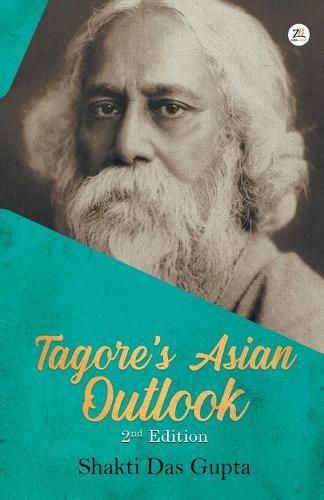Readings Newsletter
Become a Readings Member to make your shopping experience even easier.
Sign in or sign up for free!
You’re not far away from qualifying for FREE standard shipping within Australia
You’ve qualified for FREE standard shipping within Australia
The cart is loading…






This title is printed to order. This book may have been self-published. If so, we cannot guarantee the quality of the content. In the main most books will have gone through the editing process however some may not. We therefore suggest that you be aware of this before ordering this book. If in doubt check either the author or publisher’s details as we are unable to accept any returns unless they are faulty. Please contact us if you have any questions.
The author was a Bengali officer of India’s Foreign Service. On his first foreign assignment during 1948 - 1954, he came across rare manuscripts at the National Library in Bangkok covering Rabindranath Tagore’s visit to Thailand in October
As the Poet travelled mostly without a stenographer, a great many of his speeches would have been lost to posterity. Reports about the Siam visit available in India then were extremely sketchy. ….
Besides the material on the Poets visit to Thailand, this book contains some other important documents not readily available. The main treatise is split into four chapters: (1) Time to Awake: A Poets Warning, (2) Tagores Conception of History, (3) Message to Asia And Africa and (4) The Toiler for Peace. These chapters show what Tagore considered to be the biggest problem of human history, how he warned humanity for more than half a century against the problems and perils into which the world has been thrown today, what remedies he suggested to counter them. The author also condensed the Poet’s ideas about civilisation and culture, freedom, power, diplomacy, colonialism, military alliances, racial prejudice and nationalism.
This book, when first published during the Poet’s centenary celebrations in 1961, provided for the first time a full account of that visit. It has since been a reference source for many Indian and international scholars on Tagore, with citations in their publications. With increased attention in recent years to Tagore’s views on Nationalism, a republication for wider availability would benefit both readers and scholars on Tagore’s view of global events during the inter-War period. This is the only republication of the book after sixty years.
$9.00 standard shipping within Australia
FREE standard shipping within Australia for orders over $100.00
Express & International shipping calculated at checkout
This title is printed to order. This book may have been self-published. If so, we cannot guarantee the quality of the content. In the main most books will have gone through the editing process however some may not. We therefore suggest that you be aware of this before ordering this book. If in doubt check either the author or publisher’s details as we are unable to accept any returns unless they are faulty. Please contact us if you have any questions.
The author was a Bengali officer of India’s Foreign Service. On his first foreign assignment during 1948 - 1954, he came across rare manuscripts at the National Library in Bangkok covering Rabindranath Tagore’s visit to Thailand in October
As the Poet travelled mostly without a stenographer, a great many of his speeches would have been lost to posterity. Reports about the Siam visit available in India then were extremely sketchy. ….
Besides the material on the Poets visit to Thailand, this book contains some other important documents not readily available. The main treatise is split into four chapters: (1) Time to Awake: A Poets Warning, (2) Tagores Conception of History, (3) Message to Asia And Africa and (4) The Toiler for Peace. These chapters show what Tagore considered to be the biggest problem of human history, how he warned humanity for more than half a century against the problems and perils into which the world has been thrown today, what remedies he suggested to counter them. The author also condensed the Poet’s ideas about civilisation and culture, freedom, power, diplomacy, colonialism, military alliances, racial prejudice and nationalism.
This book, when first published during the Poet’s centenary celebrations in 1961, provided for the first time a full account of that visit. It has since been a reference source for many Indian and international scholars on Tagore, with citations in their publications. With increased attention in recent years to Tagore’s views on Nationalism, a republication for wider availability would benefit both readers and scholars on Tagore’s view of global events during the inter-War period. This is the only republication of the book after sixty years.